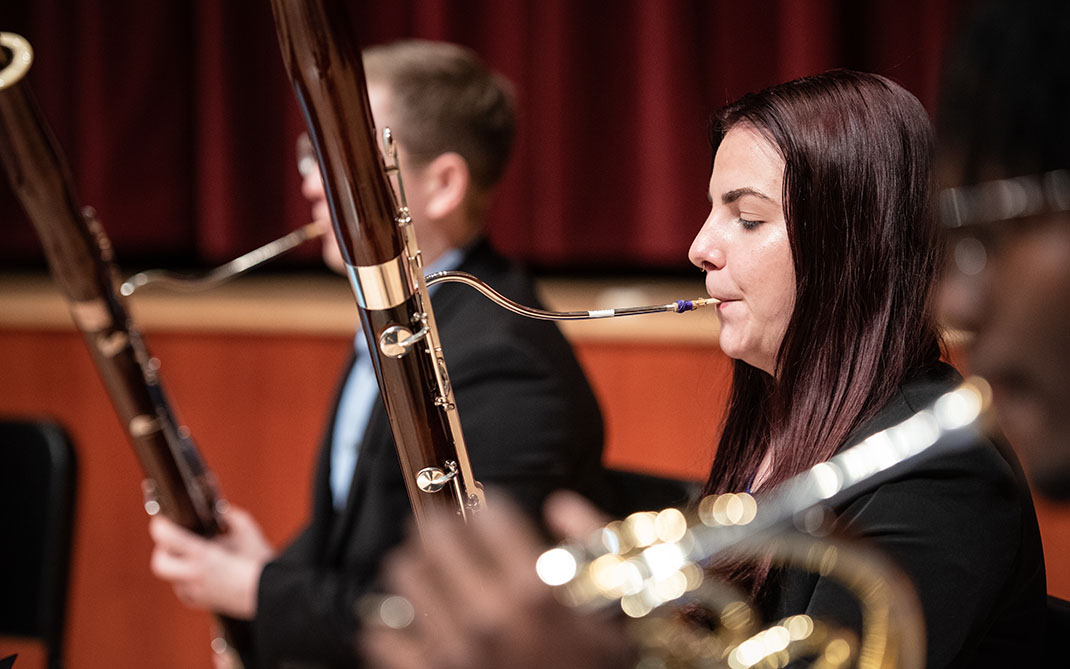Procedure
Purpose
Explains the various functions performed by Cashiering Office in the receipting and depositing of all school funds.
Scope
Applies to all university departments and activities. For purposes of this policy, cash receipts include funds received by a department or activity in the form of cash, checks, and credit cards. Included in the policies are petty cash refunds from the School Cashier.
Policy
Function of Cashiering Services
The School’s Cashier’s Office is responsible for the receipting and depositing of
all school related funds. The objective of the Cashier’s Office is to ensure that monies due to or belonging to the State are received and accounted for in a manner which assures a
complete and adequate record of each transaction and assures monetary control over
the receiving function. The operation of this office is designed to aid the School in handing receipts as
required by statute and to supply necessary information to the State Treasurer and
State Disbursing Office. The following is a partial list of the different types of receipts processed through
the Cashier’s Office:
- Student Registration Tuition and Fees
- Collections on Student Accounts Receivable
- Departmental Receipts
- Scholarship Receipts
- Special Fees
- Fines and Penalties
- Special Billings
- Receipts from Interdepartmental Billings
The Cashier’s Office is a part of the Controller’s Office and is located on the second floor of the Welcome Center. The Cashier’s window is open between the hours of 8:30 a.m.–12:30 p.m. Summer hours may differ, and are posted at the beginning of Summer Term.
Any questions which are not answered by this section of the RESOURCE MANUAL may be referred to the Cashier's Office at 336-770-1416.
Receipt of Funds
The North Carolina Statute 147-77, Daily Deposit of Funds to Credit of Treasurer,
is the governing regulation concerning the receipt and deposit of funds by the School. Briefly stated:
- Deposit to the Credit of the State Treasurer - All revenue and other receipts collected by a State agency, belonging to the State of North Carolina, shall be deposited to the credit of the State Treasurer in a depository bank as designated by the State Treasurer. Such funds shall be deposited on the next business day following the date of collection.
- Deposit All Receipts - Checks received by an agency are to be made payable to the order of that receiving agency. However, checks made payable to the State Treasurer are also acceptable. All cash collections are to be deposited. These funds are not to be disbursed as all disbursements must be made in accordance with official budgetary procedures and by checks drawn on the State Treasurer.
For the purpose of this statement, the terms “State Agency” or “agency” should be interpreted “School”.
Collection of Cash Outside the School Cashiers Office
Some UNCSA departments are responsible for collecting school related receipts from
students, faculty, staff and conference/workshop attendees. Sound accounting practice requires that an accurate record of all such receipts be
retained in the event of future audit. This statement outlines the policies for the collection of cash outside the Cashier’s
Office.
- Approval to Collect Cash - Departments that need to collect cash must receive approval from the Controller’s Office before collecting any money. After the approval has been given, and appropriate cash collection method will be designated.
- Definition of Cash - For the purpose of this statement, cash is defined as currency, coin, credit cards and checks received for any program or purpose at UNCSA regardless of the source of funding for the program or the collected monies intended use.
It should not be assumed that any cash to be collected does not fall under the scope of this policy statement without first contacting the Controller’s Office.
Receipting Requirements
Departments must issue receipts to persons from which money is collected at the time
the funds are received. Official three-part, pre-numbered, UNCSA receipts are obtained
from the Cashier’s Office in books of 200 receipts per book. The department is responsible for all receipts issued to it.
The receipts are to be used in strict numerical order, copies distributed in the following order.
- The original or first copy of the receipt is given to the payer.
- The second copy of the receipt should be maintained in numerical order and turned in to the Cashier’s Office with the funds collected.
- The third copy of the receipt is maintained in numerical order in the receipt book in the department until all receipts are used.
When all receipts in a book have been used, the book should then be returned to the Cashier’s Office and exchanged for a new book. In the event a receipt must be voided, the second copy of the receipt (pink) should be sent to the Cashier’s Office with the deposit of funds for that day. The original and third copies are to be retained in the receipt book. DO NOT DESTROY ANY PORTION OF A VOIDED RECEIPT.
For the collection of receipts by a department, the Departmental Deposit Receipt Form should be used. Refer to Procedures for Receipting and Depositing Funds for instructions.
Receipt Exceptions. Receipts are not required for funds received from the sale of admission tickets (i.e. Stevens Center and Alex Ewing Performance Place) that are either pre-numbered or show the section, row and seat for which they were sold. However, cash reports must be prepared and deposits made daily. The library uses an automated receipting system. Adequate internal controls and reporting capabilities must be in place to insure that all funds received are accounted for. Cash reports must be prepared and deposits made daily.
Any other exceptions to this policy must be approved by the Controller’s Office.
Deposit Policies
- Required Frequency of Deposits - 24-Hour Limitation. All cash collected in a department must be deposited with the UNCSA Cashier within twenty-four (24) hours of its receipt or not later than the following working day. CASH SHOULD NOT BE ACCUMULATED FROM ANY SOURCE.
- Transporting of Funds. All deposits shall be hand-carried to the Cashier’s Office by Campus Police or School staff. No currency, coins, or checks are to be sent via campus mail or regular U.S. mail once the department has received the funds.
- Departments Using Receipt Books. Any department using official three-part, pre-numbered receipt books must make a deposit
with the Cashier each day. If a department fails to comply with these conditions,
the Cashier’s Office must correspond in writing with the person signing for the receipt
book stating the violation and warning that their receipt book and receipting privileges
may be taken.
At the second violation of the conditions specified above, the Cashier’s Office must write the person stating this is their second violation this fiscal year and that the receipt book and ability to receipt funds will be taken if there is another violation. A copy of this correspondence must be sent to the Department Head overseeing the non-compliant department, Dean, Vice Chancellor of Finance and Administration, and Controller.
At the third violation of the conditions specified above, the receipt book will be returned to the Cashier’s Office. A letter will be sent to the person informing them the receipt book must be returned due to non-compliance with cash collection procedures.
The Department Head of the non-compliant department must request another receipt book from the Cashier’s Office. Copies of this letter should be distributed to the Department Head overseeing the non-compliant department, Dean, Vice Chancellor of Finance and Administration, and Controller. Receipt books should not be given to the person or any other person with the program or department until a memorandum from the Department Head overseeing the non-compliant department has been received in justification of the person and the department being allowed to continue to collect funds. - Preparation of Deposit. All checks must be stamped with the “received from” stamp and initialed by the person
receipting them as soon as they are received. A Departmental Deposit Receipt form must be completed and accompany the deposit. The second copy of receipts from the receipt books must also be attached. It is the department’s responsibility to insure that the total of the receipts equal
the actual dollar amount collected and deposited with the Cashier, or to document
any overage or shortage. Cash overages must be deposited in the Cashier’s Office; notations pertaining to cash
over or short must be included with the deposit when it is delivered to the Cashier. The School Cashier is required to complete and validate a two-part UNCSA receipt. The Cashier will give the person making the deposit the second copy of the validated receipt. The original copy of the validated receipt form is kept by the School Cashier
and attached to the Departmental Deposit Receipt form. The second copy of the validated receipt is the Department’s only documentation for
deposits made.
Storage and Safeguarding of Funds
Departments are responsible for making sure that funds are kept safe. The following guidelines should be followed when storing funds:
- Currency, coin and checks must be stored overnight in a secure place, preferably in a safe or vault.
- Safes and vaults should not be left unlocked or in a “set” position when unattended.
- Do not leave money in files, desks, or cabinets; these can be opened even though they are locked.
- Never leave money in any type of cash drawer overnight.
- Failure to adhere to the provisions of this policy in the event of a loss or theft of funds and other valuables could result in the department having to cover the loss from department funds. Such losses may not be charged to state funds.
- All losses or thefts must be reported immediately to both the Campus Police Department and the Controller.
Check Cashing (In-House Banking Service)
The Cashier’s window is open 8:30 a.m.–12:30 p.m. daily for services including student
check cashing. Summer hours may differ, and are posted at the beginning of Summer
Term. The limit for cashing checks at the Cashier’s Office is $50.00 per student per
day. Exceptions to this limit will be at the discretion of the Bursar and are subject
to the availability of funds.
Students must appear in person and present their UNCSA One Card to receive check cashing services.
Student Refund Checks
Students may elect to have their refund directly deposited into their bank account.
Any refund checks will be mailed to the student's permanent address.
Collection of Checks Returned Unpaid by Bank
Issuing a “worthless check” is a misdemeanor and is punishable under North Carolina
General Statute 14-107. To prevent the inconvenience and expense of potential legal
action, the maker of the check should make every effort to resolve the debt including
all related fees. Personal checks may be issued to the School for payment of tuition
or other campus services and fees. The Student Accounts office receives all notifications
of unpaid checks/ACH items. Items will be charged back and returned to the department
they were originally issued to for collection efforts to be made by that department.
Since the handling of returned checks is a time consuming and expensive operation
for the School, a policy has been established to insure that the funds due the School
are collected.
- Returned Check Received on a Student Account: All checks (paper/ACH) returned that were issued to UNCSA for any student account billing will be charged back to the respective Student’s Account, and will include a $25.00 returned check fee.
- Returned Checks Received to any UNCSA Department: Checks returned unpaid by the maker’s financial institution will be charged back to the depositing department for collection. The department will notify the maker that the check amount and $25.00 fee is owed to UNCSA. See Insufficient Funds Check Procedure for specific steps.
Petty Cash Reimbursement
The Cashier’s Office petty cash fund is used to reimburse departments for small purchases
which are not required to go through normal purchasing procedures. Reimbursement through petty cash funds is NOT allowable for the following:
- Expenditures exceeding $30.00 per expenditure. Purchases greater than $30.00 but less than $300.00 must use the Small Purchase Order, if purchased locally. Purchases may not be split to circumvent the $30.00 limit.
- Purchases of items available on state contract. Inquiries regarding purchasing policies should be directed to Purchasing Office.
- Payments to individuals for personal services.
All petty cash purchases must follow Purchasing Department guidelines and are subject to review by the Purchasing Office. In order to receive reimbursement for petty cash purchases, the individual must complete a Petty Cash Reimbursement Request form and attach receipts for the purchases.
- Petty Cash Advance. In emergency situations, a petty cash advance of up to $30.00 may be given to an individual. The individual must complete a Petty Cash Advance Request form. After the purchase has been made, the individual will return the receipt for the purchase and any remaining advance to the Cashier’s Office within 24 hours of the purchase. Any amount over the $30.00 maximum will become the responsibility of the individual.
- Departmental Petty Cash. Various departments may have their own Petty cash fund. A department must prepare a written request to the Controller’s Office for the Establishment of Departmental Petty Cash Fund. The check will be made payable to the Primary Individual Responsible for the Petty Cash Fund.
Upon authorization of a petty cash fund, the department or activity is responsible for safeguarding the fund and following school policy and procedures in petty cash expenditures, reconcilement and reimbursements Departments having their own Petty Cash Funds will be required to follow the policies established by the Financial Services (Policy Statement 9, Resource Manual) for Petty Cash Reimbursement. These include but are not limited to the following:
- Use of the Petty Cash Reimbursement Request form incorporating the same information as is on he Financial Services form-receipts must be attached.
- Use of the Petty Cash Advance Request form when issuing an advance (emergencies only) – must have individual sign for the advance and receipts must be attached.
- Prepare a reconciliation worksheet when submitting a Petty Cash Reimbursement Request for the Fund. Copies of the Petty Cash Advance Request form must accompany the reconciliation worksheet and Check Request form.
Bank Accounts
No school, department, or activity of the school is to open a bank account without
prior written approval from the Vice Chancellor of Finance and Administration.
Subject to Audit
All funds and receipting procedures are subject to audit by the State Auditors Office
and authorized school personnel.
Procedure
Authorization to Establish Receipts Collection Point
Any department needing to collect cash for any reason must receive approval from the
Controller’s Office before collecting any money. A Request for Cash Receipting Privilege form should be prepared and sent to the Controller’s
Office for approval. When approved, this request will provide the department and the
Controller’s Office with the necessary documentation to collect funds as required
by N.C General Statutes147-77, Daily Deposit of Funds to Credit of Treasurer.
- The request should be filled out as follows:
- Date of Request: Date submitted to the Controller’s Office.
- Requesting Department/Unit: The name of the Department which will be responsible for the cash collection, receipting and depositing the funds.
- Campus Location of Receipts Collection Point: The actual location where the funds will be collected.
- Name and Campus Address of Primary Individual Responsible for Collection Point: The person and his or her campus address that will be at the collection point and responsible for the funds at the collection site.
- Name and Campus Address of Individual(s) Responsible for Collection and Depositing Receipts: The names and campus addresses of persons that are accountable for the collection and depositing of the funds in accordance with the policies and procedures outlined in the Deposit Policy Section of the Resource Manual.
- State the need to collect receipts: Describe the activity that requires the collection of funds.
- Give an estimate of the amount of anticipated collections on a daily basis: As accurately as possible, determine the amount of funds to be collected each day.
- Accounts/Activities and General Sources of Receipts Collected: If an account number in which to deposit the money collected has been established, please list the account number and the account name. If an account has not been established, contact the Controller’s Office for additional instructions. If the existing account number is sufficient, another is not needed just because the collection point is new.
- After the request has been prepared, the person originating the request should sign his or her name and title, date and telephone number.
- When approved, the Controller will sign, date and return a copy of the request to the responsible person. A copy of the signed form will be sent to the Cashier’s Office for inclusion with other collection points on file.
- The responsible person will schedule a meeting with the Cashier’s Office. At that time the Cashier’s office will:
- Explain the cash receipting process.
- Issue a Cashier’s Receipt Book.
- Explain that the collection point will be subject to cash counts and reviews by the State Auditors and authorized school personnel
- Submit a revised Request for Cash Receipting Privilege form to the Controller when there are personnel changes or changes in receipting purposes.
Receipting and Depositing Funds
Refer to the various Policy Statements for additional information. All departments
and offices receiving UNCSA related monies must receipt the money when it is received,
give the payer a copy of the receipt, and deposit all money received with the Cashier
within twenty-four (24) hours. For all collection points not using a UNCSA approved automated system of receipting,
handwritten receipts from a UNCSA Cashier issued receipt book may be used.
- Obtain a book of School 3-part receipts from the Cashier.
- Use receipts in strict numerical order.
- If a receipt must be voided, write “void” across it, send the first (white) and second copy (pink) to the cashier, and retain third copy (yellow) in the receipt book.
- When money is received, complete a receipt indicating the following information in
the applicable labeled blanks
- Date: The date money is received.
- Received From: Name of the person making payment.
- Dollars $: The amount of money received
- For: The purpose for the payment.
- Account, Amount of Account, Amount Paid, Balance Due: These blocks are used only if payment is being received on an outstanding account. List the appropriate amounts in the respective blocks.
- How paid, Cash, Check, Money Order: List the amount paid by each medium of exchange.
- By: The signature of the person receiving the payment (party must be authorized to collect on behalf of the department receiving payment).
- Remove the original or top copy of the receipt and give it to the payer.
- Remove the second copies of the receipts from the book and attach to the deposit.
- Prepare the deposit as described: This must be done daily.
- Wrap large amounts of coins in bank coin wrappers, and write the department’s name on the wrappers.
- Run an adding machine tape on any checks or list the amounts of the checks if an adding machine is not available. Make sure all checks are initialed by the person receiving them.
- Determine the total amount of money represented by the receipts and the total amount of money collected. Reconcile any difference.
- List the following information on a Departmental Deposit Receipt form which must accompany
the deposit.
- Name of the department making the deposit
- Name of the person who prepared the deposit
- Date of the deposit
- Description of the deposit
- Beginning and ending numbers of the receipts applicable to the deposit
- Number of any voided receipt
- Name of the person who should receive the copy of the Cashier’s receipt amount of currency, coin, checks and credit card slips (Stevens Center only)
- Total amount of the deposit
- Account number(s) and amount(s) to be credited with the deposit
- Take the money, receipt copies, and Departmental Deposit Receipt form to the Cashier’s window on the first floor of the Administration Building.
- The Cashier will verify the Departmental Deposit Receipt form and validate a two-part UNCSA receipt and give the person making the deposit (or mail to the person specified) the second copy.
Bank Returned Checks — Unpaid Items
Refer to the various Policy Statements for additional information.
- Checks returned for insufficient funds are automatically represented for payment, returns for various other reasons enter the collection process immediately. If payment is refused a second time for insufficient funds, the bank will inform the Student Accounts Office of any unpaid/returned check (paper/Automatic Clearing Houses (ACH). When applicable, the Student Accounts Office is responsible for submitting payment for the return to UNCSA’s financial institution.
- If the check was originally received by a department, the Student Accounts Office will notify the depositing department, providing all relevant information and a legal copy of the item for which they will be charged due to the return.
- A standard letter is sent by the depositing department to the person who issued the check that was returned. This letter informs the person that their check has been returned to UNCSA for the applicable reason. It also states that a $25.00 service charge has been assessed. The person must bring in cash, a money order, or a cashier’s check in the amount of the check plus the service charge. In the case of a departmental return, the letter states that the person respond within (5) working days. Returns charged to a student account are managed per the guidelines outlined in Student Accounts’ policies and procedures.
- If there is no response to the first letter by the established deadline, a copy of the first letter marked “SECOND NOTICE” is sent to the person. In addition, a copy of this notice will be sent to the parent or guardian where applicable. The second notice gives the person two (2) working days to respond by bringing in cash, a money order or a cashier’s check in the amount of the check plus the service charge. Returns charged to a student account are managed per the guidelines outlined in Student Accounts’ policies and procedures.
- If there is no response to the second letter by the established deadline, acceptance of check for payment on campus is suspended.
- Individuals will not be allowed to register for classes, receive a diploma, or receive transcripts until the worthless check(s) and service charge(s) have been paid. Any questions related to this policy should be directed to the Controller at 336-770-3304.
Petty Cash Reimbursement
Refer to the various Policy Statements for additional information.
- The Cashier will make reimbursements for petty cash purchases during Cashier window open hours between 8:30 a.m.–12:30 p.m.
- The maximum amount of purchases which can be reimbursed via the Petty Cash Fund is $30.00.
- Petty Cash Reimbursement Request form should be completed as follows:
- Department: Name of Department
- Purchased by: Name of the person requesting reimbursement
- Date: The date of the request
- Department Head Approval: Signature of the department head authorizing approval of the reimbursement
- Date: The date approval is given by the department head.
- Explanation of Purchase: A description of the purchase
- Total amount Requested: Total amount of the reimbursement
- Accounts to be charged/Amount: The departmental account(s) and amount to be charged
- The Cashier will verify the information, sign and date the form.
- The person receiving the reimbursement will indicate amount received, sign and date the form.
- ALL APPLICABLE RECEIPTS MUST BE ATTACHED TO THE FORM. No reimbursement will be made if receipts are missing.
Request for Petty Cash Advance
- The Cashier will make petty cash advances for purchases during Cashier window open hours between 8:30 a.m.–12:30 p.m.
- The maximum amount of purchases which can be advanced via the Petty Cash Fund is $30.00.
- Petty Cash Advance Request form should be completed as follows:
- Department: Name of Department
- Advance Request by: Name of the person requesting reimbursement
- Date: The date of the request
- Department Head Approval: Signature of the department head authorizing approval of the reimbursement
- Date: The date approval is given by the department head
- Petty Cash Advance to Purchase: A description of the purchase and reason
- Total amount Advanced: Total amount requested
- Accounts to be charged/Amount: The departmental account(s) and amount to be charged
- The Cashier will verify the information , sign and date the form.
- The person receiving the reimbursement will indicate amount received, sign and date the form.
- When the purchase has been made, the individual will return the receipt for the purchase and any remaining advance to the Cashier’s Office within 24 hours of the purchase.
- The Cashier will verify the receipt and the return of the advance. The actual purchase amount will be entered on the form. If the purchase exceeded the amount of the advance, the Cashier will reimburse the individual (up to the $30.00 per purchase maximum). Any amount over the $30.00 maximum will become the responsibility of the individual.
- The individual will sign the form indicating that the receipt and any excess funds have been returned to the Cashier.
- The Cashier will sign and date the form.
Establish Departmental Petty Cash Fund
- Custodian. The head of each department or activity must designate one specific individual to
act as custodian of the petty cash fund. The custodian shall be responsible for acquiring
a thorough knowledge of this policy and for maintaining the petty cash fund in accordance
with the procedures contained herein. Access to the petty cash fund should be restricted
to the custodian only. Petty cash funds are non-transferable. If there is to be a
change of custodians, the Controller must be notified in writing and the petty cash
funds reconciled back to the authorized fund level prior to the change in custodians.
- Restrictions. Petty cash funds shall be kept separate and apart from all other funds. They are not
to be commingled with personal funds, miscellaneous cash receipts, or revenue of any
type which may have been collected. Neither are they to be used for purchasing personal
services, making advances to employees, cashing checks, making change, purchasing
stamps, making other non-operating disbursements or circumventing the purchasing process.
- Safeguarding a Fund. The head of the department or activity and the custodian of the petty cash fund are
jointly responsible for ensuring that the funds are properly safeguarded. When not
in use, the funds shall always be stored in a locked container. If a loss of these
funds occurs, such loss (depending upon the circumstances) may have to be paid from
the department's own funds. Campus Police may be contacted for advice on the proper
methods for safeguarding a fund. All thefts shall be reported by the department to
Campus Police and the Controller.
- Expenditures. Each petty cash expenditure shall be supported by both a vendor's receipt and a Petty
Cash Reimbursement Request form. Vendor receipts and Petty Cash Reimbursement Request
forms are to be kept with the fund until it is reimbursed. Note that expenditures
chargeable to several school account codes may be paid out of a single petty cash
fund.
- Reconciling the Petty Cash Fund. The custodian is responsible for reconciling the petty cash fund on a periodic basis.
Reconciliations are required prior to requesting reimbursement to the fund. At all
times, the total of cash on hand plus unreimbursed Petty Cash Reimbursement Request
forms, with vendor receipts attached, should equal the total amount of the authorized
petty cash fund. A Petty Cash Fund Reconcilement form shall be used for fund reconcilement.
Any cash over shall be remitted to the Cashier when expenditure reimbursement is requested
from the Controller. Any cash over found during an internal audit will be remitted
to the Controller immediately by the custodian.
- Cash Over. The amount of cash over shall be noted on the Petty Cash Fund Reconcilement form
submitted to the Controller. The Controller will collect the cash over amount from
the custodian, to return the petty cash fund amount to the authorized fund level.
These funds will be deposited at the Cashier's Office by the Controller.
- Cash Short. The amount of cash short shall be noted on the Petty Cash Fund Reconcilement form
submitted to the Controller. The Controller will record the cash short amount and
adjust the reimbursement to the petty cash custodian, to bring the petty cash fund
amount up to the authorized fund level. All cash shortages of $10.00 or more must
be approved by the Controller prior to reimbursement.
- Reimbursement. Before all petty cash has been expended, the custodian should reconcile the petty
cash fund and submit the Petty Cash Reimbursement Request form, the Petty Cash Fund
Reconcilement form, and cash balance to the Controller for reimbursement.
- Time Limits for Submitting Reimbursement Request. Reimbursement must be requested within thirty days after the expense is incurred.
Reimbursement requests at fiscal year end should be submitted on or before a date
determined by the fiscal year close schedule and the Controller. If these time limits
have expired, contact the Controller for further advice and/or consultation.
- Changing the Amount of the Petty Cash Fund. The amount of a petty cash fund may be increased, provided the increase is justified,
by submitting a written request to the Controller. A petty cash fund must be reduced
whenever the total amount of the fund exceeds the actual needs of the department or
activity. That portion of the fund in excess of the department's needs should be hand
delivered to the Controller with a memo indicating the amount by which the fund was
decreased. All petty cash funds must be hand delivered to the Controller when the
funds are no longer needed.
- Audits. Petty cash funds are subject to periodic audit by the Internal Auditor and the State Auditor. Such audits will require reconcilement of the petty cash fund and will also include a review of internal controls.
- Prepare a written request to the Controller’s Office for the establishment of a Departmental Petty Cash Fund.
- Name of Department Requesting Petty Cash Fund
- Date of Request
- Name and Campus Address of Primary Individual Responsible for Petty Cash Fund
- Reason for Requesting a Petty Cash Fund
- Source of Funds for Petty Cash Fund (account number and name)
- Copy will be kept on file in the Cashier’s Office and a copy will be sent to the department.
- Department will then prepare a check request for the amount of petty cash funds approved and submit it to Accounts Payable. The check will be made payable to the Primary Individual Responsible for the Petty Cash Fund.
- Departments having their own Petty Cash Funds will be required to follow the policies
established by the Financial Services (Policy Statement 9, Resource Manual) for Petty
Cash Reimbursement. These include but are not limited to the following:
- Use of the Request for Reimbursement form incorporating the same information as is on he Financial Services form-receipts must be attached.
- Use of the Request for Petty Cash Advance form when issuing an advance (emergencies only) – must have individual sign for the advance and receipts must be attached.
- Prepare a reconciliation worksheet when submitting a request for reimbursement to the Petty Cash Fund. Copies of the Requests for Advance must accompany the reconciliation worksheet and check request form.






